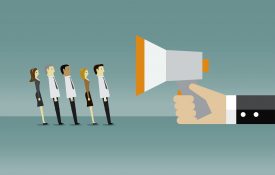-

People Love Working with Extraverts, Until the Going Gets Tough
The same qualities that led to an “extravert advantage” when teams functioned smoothly led to exacerbated tensions when teammates faced conflicts.
-
When It Comes to Success, Age Really Is Just a Number
The New York Times: The question hangs over the career of every ambitious soul: Is there still time to make a mark? Charles Darwin was 29 when he came up with his theory of natural selection. Einstein had his annus mirabilis at age 26; Marie Curie made big discoveries about radiation in her late 20s. Mozart’s Symphony No. 1 in E flat: 8 years old. For years, scientists who study achievement have noted that in many fields the most electrifying work comes earlier in life rather than later. After all, younger people can devote their life to a project in a way that more senior people cannot, and young stars attract support, mentors and prestigious appointments.
-
Turns Out, Faking a Smile Might Not Make You Happier After All
Live Science: Perhaps you've heard that you can brighten your mood just by faking a smile. But that idea, which came out of a psychological experiment from the 1980s, may not be true after all, as scientists were not able to repeat the results in a lab setting in a large, rigorous new study. The hypothesis, called the facial-feedback hypothesis, dates back to a 1988 study in which participants rated the humor of cartoons while inadvertently mimicking either a smile or a pout. The participants were simply asked to hold a pen in their mouths, either with their lips (which pushes the face into a frown-like expression) or their teeth (which mimics a smile).
-
The myth of self-control
Vox: As the Bible tells it, the first crime committed was a lapse of self-control. Eve was forbidden from tasting the fruit on the tree of knowledge. But the temptation was too much. The fruit was just so “pleasing to the eye, and also desirable for gaining wisdom,” Genesis reads. Who wouldn’t want that? Humanity was just days old, but already we were succumbing to a vice. The takeaway from this story was clear: when temptation overcomes willpower, it’s a moral failing, worthy of punishment. Read the whole story: Vox
-
Whose Life Should Your Car Save?
The New York Times: The widespread use of self-driving cars promises to bring substantial benefits to transportation efficiency, public safety and personal well-being. Car manufacturers are working to overcome the remaining technical challenges that stand in the way of this future. Our research, however, shows that there is also an important ethical dilemma that must be solved before people will be comfortable trusting their lives to these cars. As the National Highway Traffic Safety Administration has noted, autonomous cars may find themselves in circumstances in which the car must choose between risks to its passengers and risks to a potentially greater number of pedestrians.
-
How to Make Sure You Don’t Screw Up Your Ballot
New York Magazine: As a species, humans tend to be easily distractible, confused, and prone to neglecting important details. Voting is a particularly important and depressing example. In an interesting paper in Current Directions in Psychological Science that isn’t online yet, Philip Kortum and Michael Byrne, both researchers at Rice University, briefly sketch out all the ways people can screw up in the voting booth and how to make voting a bit better and clearer. Read the whole story: New York Magazine

